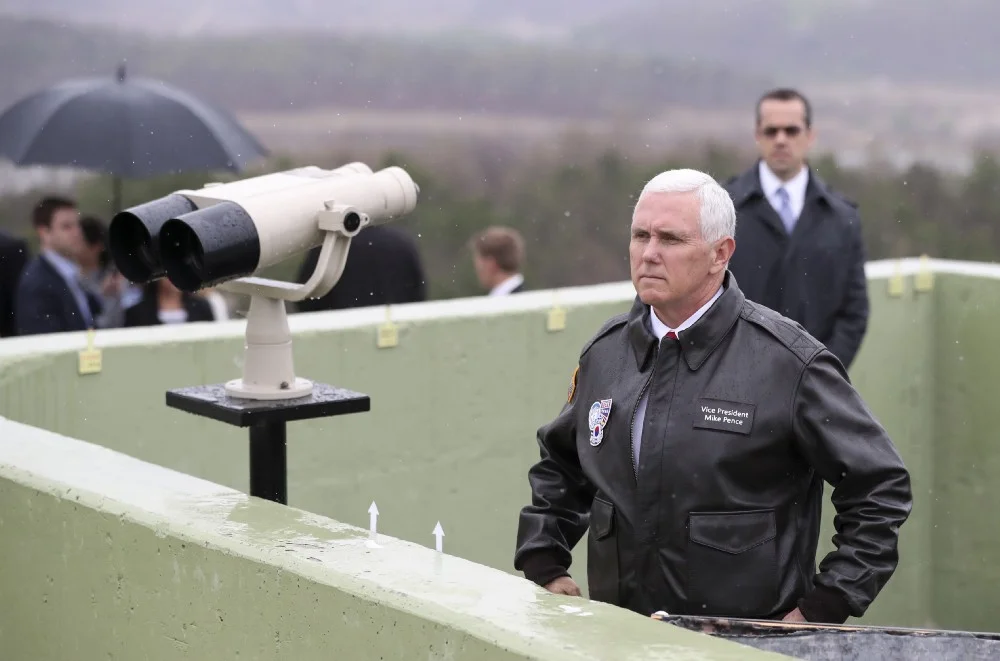The Source of Regime Survival in North Korea By Jun Kwon
North Korea made another provocation by launching missiles over Japan and into the Pacific Ocean early Tuesday. President Trump said that “all options are on the table” and “talking is not the answer!” These events have cast a cloud over possible dialogue between the U.S. and North Korea.
If talking is not the answer, what options would Trump administration have to stop North Korea from launching missiles and obtaining nuclear weapons? Military options including preemptive strikes, whether they are surgical or not, are too risky, considering that North Korea is surely expected to retaliate against the U.S. military bases as well as its allies, South Korea and Japan.
At present, it seems that there is only one option which would be the imposition of more severe economic sanctions on North Korea, including the increased sanction of the secondary boycott targeting Chinese people and firms helping North Korea. The U.S. may want to use trade cards to press China to impose economic sanctions on North Korea in a more meaningful way.
Sanctions are predicated upon two assumptions: 1) North Korea will give up its aggressive military ambitions, including nuclear weapons if economic conditions become bad enough; and 2) revolutionary activities will occur leading to regime collapse when there is widespread discontent and frustration among people. If people in North Korea view the government as responsible for their aggravating economic plight, they may rise up against the Kim’s regime.
These two assumptions have been proved wrong so far. Kim’s regime seems secure from the fear of forced removal and seems to govern without major challenges to its authority.
A political system implodes when it experiences an unmanageable degree of crisis over its legitimacy. Political Scientist Rodney Barker has defined regime legitimacy as “right to rule” or “the belief in the rightfulness of a regime" and "its authority to issue commands." Commands are obeyed not solely out of fear, but "because they are believed to have moral authority" and "subjects believe that they ought to obey.” If a regime fails to generate and maintain legitimacy, then the regime will collapse.
In theory, there are two strategies ruling elites utilize for generating political legitimacy: 1) their performance in satisfying people’s material needs; and 2) promotion of a belief system through an ideology.
The Kim regime’s legitimacy is not based on economic performance of the regime and its survival is not directly linked to its performance to satisfy people’s needs. Instead, Kim’s regime is founded on ideological grounds. In other words, the Kim’s regime is sustained by ideological indoctrination based on pathological nationalism, not its ability to provide material satisfaction to its people.
Kim’s regime has been successful in “persuading” the masses and institutionalizing a belief system of nationalism in the populace upon which people’s consent and loyalty to the regime are built. This belief system of pathological nationalism, then, is propagated by means of the various agents of political socialization, especially those over which the regime can exercise some direct control, such as the mass media and the educational system.
The ruling elites cite the hostile policy of the U.S. as the primary reason for their economic misfortune. They propagate that standing up against the sole superpower, the U.S. is an enormous source of national pride. The external threat (actual or perceived) from the United States has empowered the Kim’s regime that otherwise might experience a legitimacy crisis. In this regard, the U.S. has been complicit in keeping Kim and his associates in power. Thus, talking appears to the best answer.
JT Kwon is Assistant Professor of Government at Utica College.





